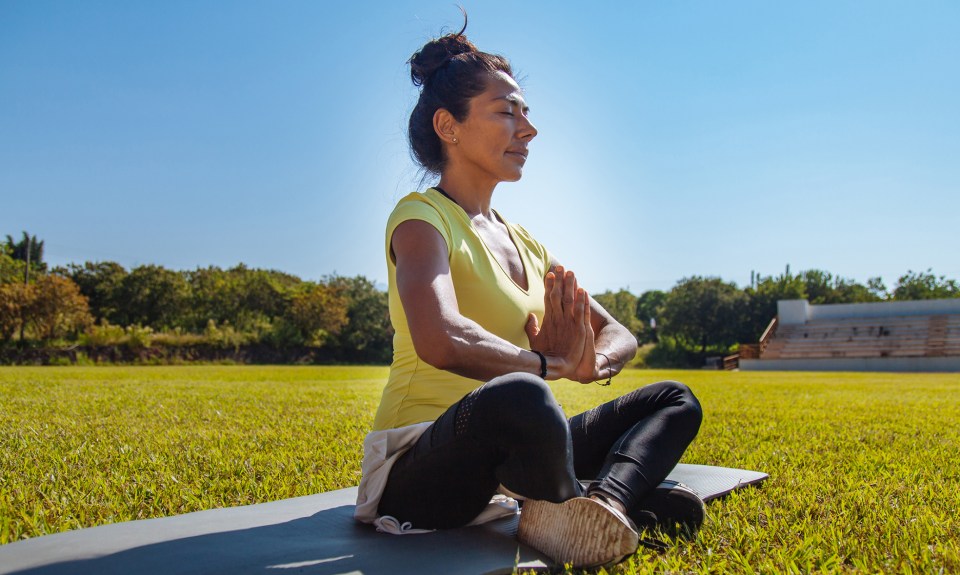Multiple sclerosis is an autoimmune disease that attacks the fatty tissue that surrounds and insulates the nerves. This affects the messages to the muscles, causing them to get mixed up, and can lead to painful muscle contractions, fatigue and/or lack of strength.
MS can cause diverse symptoms, from balance deficits, primarily due to lack of feeling in the arms and legs, to possible blindness. Although not all physicians agree, some studies suggest that stress can increase the chances of developing the disease and, for those diagnosed, the frequency of flare ups or relapse where new symptoms appear or old ones worsen. For that reason and more, yoga could be beneficial if you have MS.
Why Yoga for MS?
Yoga is an ancient science-based practice and is the ultimate stress-buster. The poses and breathing could help those with MS cope with the illness and improve their quality of life. A practice should include asana yoga, which is a physical program focused on stretches that can elongate the muscles and provide relief from the painful shortening of the muscle in spasms or contracture. In addition, a yoga practice should include a focus on postures to strengthen—within a person’s physical limits—the core muscles that assist in posture and keeping the spine in proper alignment.
The course of MS can vary, so a yoga for MS should be designed for the individual and their changing needs. If you suffer from increased fatigue, consider restorative poses. If you feel overall weakness, consider modifications and props for assistance. Balance deficits can be helped by using a wall or chair.
A Focus on Breath
The diaphragm can also be affected by MS and requires strengthening with a consistent breath work practice to maintain good respiratory health. Deep diaphragmatic breathing, another aspect of yoga, can help in relaxation of muscle tissue and pain management. Drawing the attention to the mechanics of the breath—its location, pace, and the length of the inhale and exhale—keeps the mind from drifting to negative territory.
Reducing Anxiety and Negative Thinking
Bodily awareness is another yogic focus that helps relieve negative thoughts and anxiety. With this mindful presence in the practice, a sense of well-being, encouragement of faith in self-healing and a sense of acceptance of how your body functions can help you relax and relieve stress.
Even if the illness causes you to be bedridden, you can still practice meditation and breath work.
What to Consider before Starting a Practice
There are some things to consider before beginning a yoga for MS program. Head and neck support are priorities for maintaining a neutral spine alignment. Overheating could make symptoms worse because it slows nerve conduction. Therefore, vinyasa/flow or hot yoga should be discouraged. Backbend postures can increase an upward and outward burst of energy and should be cautiously added to a program.
If you have MS, start small and talk with your physician before seeking out a professional practice. Work can even be done from a seated position, which is beneficial and safe. The following posture not only challenges and strengthens the diaphragm, but it also stretches the hips, lower back, shoulders and neck. It massages the internal organs and helps to rid the body of stagnant fluids and “stuck” energy, all of which could be beneficial for those with MS.
The Pose: Bharadvajasana
Sit sideways on a chair facing to the right with your knees and feet hips width apart. Turn to your right and use both hands to take hold of the back of the chair. With each inhalation, lengthen your spine; with each exhalation turn from your naval and twist a little more deeply into the pose. Keep your head facing the same direction as your chest, and keep your shoulders level. Move your legs to the other side of the chair, and repeat the pose on the other side.
The content of this site is for informational purposes only and should not be taken as professional medical advice. Always seek the advice of your physician or other qualified healthcare provider with any questions you may have regarding any medical conditions or treatments.




